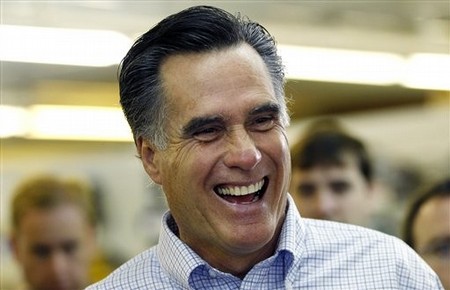Mormonism shouldn't be mocked during the presidential campaign

When one writes an article on foreign policy and religion one should be prepared to demonstrate more than a passing knowledge of either. Furthermore, one might wish to avoid using a sexual reference as a title. This piece by Molly Worthen fails on all accounts.
First, Worthen fails, as many scholars do, to distinguish between Mormonism generally and any given church. For the record, Mormonism includes varying cultural and religious traditions across the United States and world that accepts the Book of Mormon as scripture. There are many religious organizations, the Church of Jesus Christ of Latter-Day Saints being by far the largest, and the one to which Mitt Romney and John Huntsman belong. However, Mormon culture and traditions may have significantly different policy recommendations than the organization of the LDS Church.
Secondly, Worthen does not go beyond a very cursory examination of any Mormon doctrine, or culture which may impact foreign policy. Does she intend to imply that Romney might be pro-France because he was a missionary there, or that Huntsman might somehow favor Taiwan? Furthermore, Mormon scriptures have a great deal of political content, and not one is cited throughout the article (for example the extensive discussion of war in Alma 43-62).
Third, Worthen does not address foreign policy at all within her article. Indeed, it reads like a term paper on Mormonâ??s adapted for a foreign policy audience. The brief discussion of the Mormon version of American Exceptionalism is interesting, but American Exceptionalism is an assumption, not a policy, and has informed everyone from JFK to George W. Bush. Her sense that Mormons tend to be pragmatic even appears to me to be correct, but pragmatism is also an approach rather than a policy.
Finally, Worthen introduces extremely spurious information. She informs us that â??Rumor has it that the CIA and FBI treat the Mormon faith as a de facto background check and recruit more heavily on the campus of Brigham Young University than almost anywhere elseâ? - an assertion preposterous on the face of it. Moreover, apparently, "today's most famous Mormon guru [is] Glenn Beck,â? as if a talk show host has sway either within the church or the foreign policy community.
Presidential elections and foreign policy are far too important to treat so lightly. While some may argue that it is unimportant what a personâ??s religion is, I believe that this is a topic worthy of discussion, if for no other reason than people do have concerns about it. Nevertheless, one must approach this topic carefully and responsibly.
It is not as though there is not abundant information on the topic readily available to the public. Speaking on the LDS Church, it has made all of its scriptures, statements and nearly all of its publications available online. Additionally, many scholars study LDS and Mormon culture in a political context including Harold Bloom and Armand Mauss. Furthermore, the LDS Church operates a university with a respected political science department, which includes Valerie Hudson who has written on both LDS religion and foreign policy! Finally, there are a variety of public figures in the recent past who could be looked to for inspiration including, but certainly not limited to Mo Udall, Ezra Taft Benson, J. Reuben Clark, and of course Brent Scowcroft.
(AP Photo)



